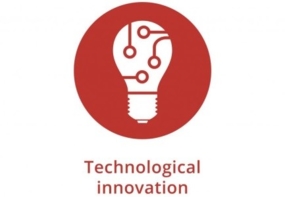SeaBioComp
Development and demonstrators of durable bio-based composites for a marine environment
Common Challenge
The increasing world production and consumption of plastic materials and composites are giving rise to a growing concern about the greenhouse emissions during the production, and the waste management of these predominantly oil-based materials.
More in particular, the long-term environmental impact of plastic litter and microplastics on the marine environment has gained momentum in the public perception and global media (cfrs Solent LEP – Innovation strategy 2016, The blue cluster, Flemish spearhead cluster). Bio-based polymers, or polymers from renewable resources, could prove to be a viable substitute for conventional fossil-based polymers in many applications with significantly reduced greenhouse emission and potential biodegradability.
The current trend in the field of polymer composites, or plastic material that are reinforced with e.g. glass or carbon fibre, is to find bio-composite alternatives for both the matrix polymeric plastic and fibre reinforcement. These materials will cater to the current demands in several fields - including the maritime industry - for substitute materials for conventional fossil-based composites in e.g. fish & seaweed farming, energy harvesting, boats, pontoons, anchoring and buoy elements. The bio-composites will not only reduce the depletion of fossil-based resources but also limit the emission of greenhouse gases and the eco-toxic impact of microplastics, and allow recycling through the use of thermoplastic bio-polymers.
At the same time, these materials will have to meet the highest technical performance standards and withstand harsh sea conditions, including mechanical forces, aggressive environment, and intense UV light.
Overall objective
SeaBioComp will develop and deliver demonstrators using innovative bio-based thermoplastic composite materials with the following characteristics:
- tailored durability according to the specific application (2 to >20 years) for a demonstrator in a marine environment as measured by newly developed analytical methods
- mechanical properties that are at least equivalent to the ones of conventional fossil-based composites
- reduced CO2 emission (30%)
- reduced ecotoxic impact on the marine environment by microplastics as measured by newly developed analytical methods
- demonstrated recycling potential of the materials used in the demonstrator.
These characteristics should decrease the overall environmental impact by 50% compared to conventional oil-based counterparts through the entire value chain from production to waste treatment. The proposed bio-composite materials and developed analytical protocols for long-term durability and ecotoxicity should lead to a shifted mind-set along the value chain about bio-based composites being a realistic alternative to fossil-based counterparts.
Main Outputs
Outputs in terms of novel thermoplastics biocomposites:
- 3 semi-industrial demonstrators of thermoplastic biocomposites with tailored durability, each representing a different composite production technique
- pilot production equipment for large scale additive manufacturing of fibre-reinforced thermoplastic biocomposites and prove the potential by generating 1 semi-industrial demonstrator
Outputs in terms of optimised analytical protocols:
- Protocols to characterise the tailored, long-term durability of the formed demonstrators in a marine environment
- Protocols to characterise the improved ecotoxicity of the formed demonstrators in a marine environment
These protocols will be used to prove the reduced ecological impact of the developed biocomposites on a marine environment and serve as a benchmark for future regulations and standardized protocols for public authorities.
SeaBioComp will distribute this information through the formation of a collaborative transregional cluster promoting a closer, more effective and operational cooperation among the key stakeholders within the bio-economy (Key Enabling Technology) and, more specifically, biocomposites for marine environment.
Cross-border approach
To ensure the success of this project, expertise in various domains including polymer formulation and textiles (Centexbel, CETI), composite manufacture (ARMINES, UPlymouth & PolyProducts BV), environmental impact and durability studies in sea environment (UPortsmouth, VLIZ & Ifremer) has been combined in the SeaBioComp-partnership.
The combination of renowned universities, research centres and composite companies with industrial sector associations (Matikem, Marine South East, REWIN) will ensure that the goals of the project stay on track, remain industrially relevant and reach the entire triple helix of academia-industry-public authority through the extensive combined SeaBioComp network.
Contact information
Project Manager: Gertjan Vancoillie, gvc@centexbel.be
Dissemination manager: Simon Powel, sp@mseuk.org
Ifremer contacts:
Peter Davies, (peter.davies@ifremer.fr),
Maelenn LeGall (maelenn.le.gall@ifremer.fr)
Website: www.seabiocomp.eu
Last news : Meeting 07/10 november 2022 Portsmouth (UK)
Research Priority
Project financing
Project budget: € 4,129,325.35
ERFD: € 2,477,595.21 (60%)





